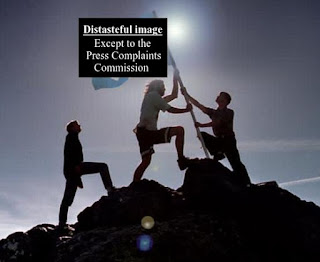Many will say that we live in a stable democracy; the prospect of
an army general orchestrating a coup d'etat, a mad monarch declaring themselves
absolute ruler or even a Prime Minister refusing to leave office all seem
pretty remote, and the ‘gentlemen’s
agreements’ that underpins our society, despite being a poor substitute to a written constitution, do enough to ensure that elections
will continue for the foreseeable future.
But these issues aren’t the purpose of this entry. We want to highlight that not all democracies
are created equal, and that Westminster fails us in comparison to Holyrood.
Yes, there will be some math involved, but please keep reading!
In 2010, there was a general election to determine the make
up of the UK parliament. Let’s look at
the results in Scotland.
42% of voters picked the Labour Party
20% of voters picked the SNP
19% of voters picked the Liberal Democrats
17% of voters picked the Conservative party
2% of voters picked other candidates
69% Labour
10% SNP
19% Liberal Democrats
2% Conservatives
This doesn’t appear to be a very fair distribution of
power. The second most popular party
received almost half as many seats as the party in third, and the forth most
popular (which was just 2.2% behind third) received ten fewer representatives. And while Labour supporters may at first be content, there is no guarantee that the system will keep favouring them forever. Indeed they stand to lose the most if reforms don't take place, as a small drop in their share of the vote could result in a massive reduction in MPs.
These numbers highlight the problem with Westminster. Parliaments are supposed to reflect the
wishes of the people and the above proves that this isn’t the case. ‘First past the post’ isn’t working. The argument that voters pick a local
representative to champion their issues looks weak when we consider that across
England, only one out of 533 seats was won by a candidate outside the Conservative,
Labour and Liberal Democrat parties (this being in Brighton Pavilion where
Green Party candidate Caroline Lucas was elected).
Are we to believe that the best individual candidate in 532
out of 533 seats represented the Conservatives, Labour or the Liberal Democrats? Or put another way, did the Conservative
Party coincidently find 100 better candidates than before in each of the seats
that they won while Labour could only improve on 3?
The detail of the House of Commons is even worse. There are 56 independent countries with
higher proportions of women representatives in their primary parliaments than
the UK (which scores a lowly 22.3%). Regardless of how you look at it, these numbers are shocking.
But what about the Scottish Parliament?
Adding up all votes from Scotland’s 2011 election (that is,
both Constituency and Regional) the results were as follows:
.jpg)
SNP received 45% support
Labour received 29% support
Conservatives received 13% support
Liberal Democrats received 7% support
Scottish Greens received 2% support
Independent Candidates received 1% support
Others received roughly 3% support
Instantly, we see a broader range of groups winning votes. This is because people believe that the party/candidate
that they want to win has a real chance of gaining representation into the
Scottish Parliament, and thus they vote positively for them, rather than
against who they want to lose.
Let’s
look at the distribution of power:
SNP received 53% of seats
Labour received 29% of seats
Conservatives received 12% of seats
Liberal Democrats received 4% of seats
Scottish Greens received 2% of seats
Independent candidates received 1% of seats
Although it isn’t perfect, the balance between what the
people want and what the people got is much better in Scotland. This gives the electorate the confidence that their
vote actually matters, regardless of whether they are in a ‘safe seat’ or not.
There are other aspects to consider. The number of female MSPs elected was 45, or
34.8% of the parliament. This is still
too low for what I’d like, but an awful lot better than Westminster, where
Women only Shortlists artificially prop up their very low total. Coincidently, an independent Scotland would
be approximately 20th in the world for women representatives in
Government.
The disproportionate number of millionaires in the Conservative
lead UK Cabinet is also worth mentioning, and the ‘Opposition’ at Westminster aren't exactly in a better position in this regard.
This statement is true (congratulations to the three people who get this joke)
After independence, when there are a greater number of
issues to debate and room for more innovative ideas, the choices available to
the Scottish people will increase further, giving minority parties a better
platform to work from. So let’s follow
the numbers and support a stronger, more representative democracy, and say
‘Yes’ to independence.
Oh and here are two final graphs. The first shows how many representatives we
directly elect between the two houses of parliament at the moment. The second is what Yes Scotland is
offering. You can decide which one is
better.
This is the actual make up of the House of Commons and the House of Lords. We get to pick 59 people, which is equal to around 4% of Westminster. Expected boundary reforms are likely to reduce this number down to 52.
A 'Yes' Vote means that we pick all of our government all of the time. That, to me at least, is a stronger form of democracy.
If you like this blog, then please consider visiting our other sites:
Facebook - Sign for Scotland
YouTube - Sign4Scotland
Twitter - Sign4Scotland
Facebook - Sign for Scotland
YouTube - Sign4Scotland
Twitter - Sign4Scotland



.jpg)
.jpg)
.jpg)
.jpg)

.jpg)
.jpg)










